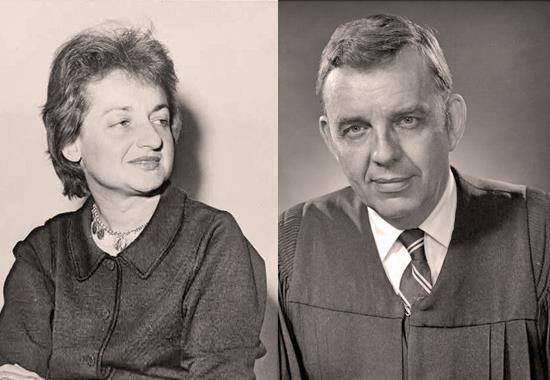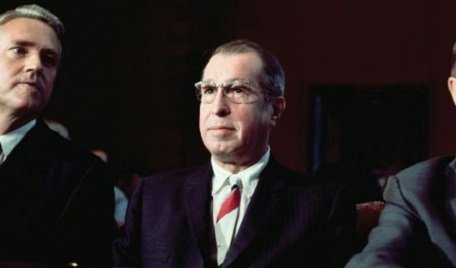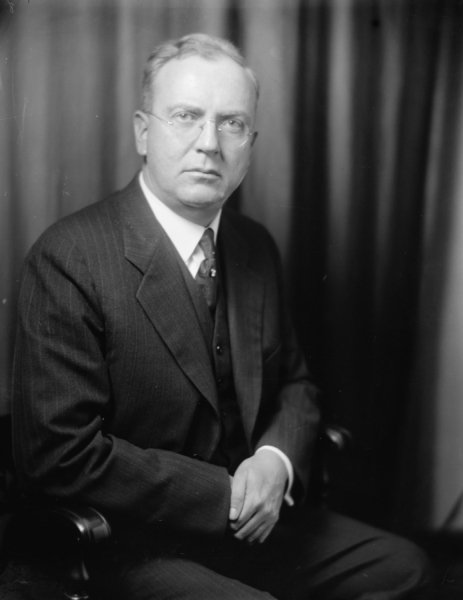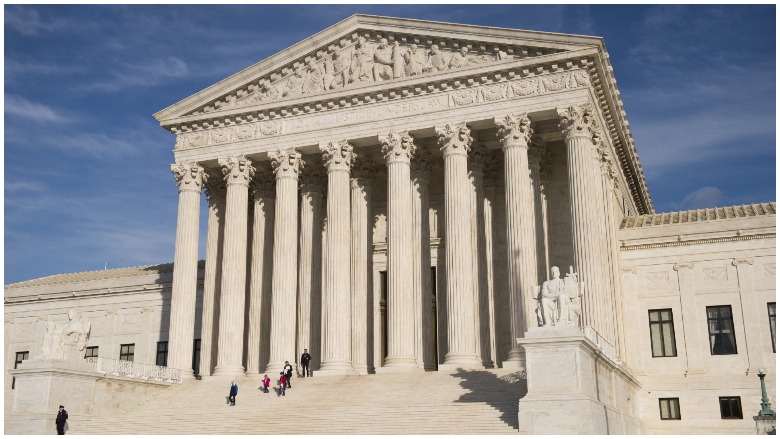
As more allegations against Supreme Court nominee Brett Kavanaugh surface, President Donald Trump has backtracked just a little on his unwavering support for the nominee. He has been tweeting that Kavanaugh is innocent. But in a news conference on Wednesday he said that he would watch the testimony today and “it’s possible they will be convincing.” How many times in the past has President taken back a Supreme Court nomination? Or when was the nomination ultimately rejected by Congress? It hasn’t happened often, but it has happened.
In his news conference Wednesday, Trump said that his views on the allegations might be colored because of so many false allegations that were made against him, CNN reported. But, he added, “I can be persuaded also. I can’t tell you if they’re liars until I hear them.”
Here’s a look at the unsuccessful Supreme Court nominations from the past, starting with the most recent ones. The majority happened in the 1800s, so we will only be detailing the ones from the 1900s up to the present day, leaving out ones that were rejected and then later approved.
Merrick Garland’s Nomination Expired
Merrick Garland’s nomination by President Barack Obama never even got off the ground. Obama nominated him in March 2016 after Justice Antonin Scalia died. The Senate was controlled by Republicans, who argued that the appointment should be made by the next President — even though the election was not until November. They refused to hold hearings for Garland’s nomination, which ultimately expired. This was the second vacancy in the Supreme Court since the Civil War’s end that was not filled longer than a year.
Harriet Miers’ Nomination Was Withdrawn by George W. Bush
Then-President George W. Bush’s nomination of Harriet Miers was so controversial in 2005 that she asked for her nomination to be withdrawn so that details about her work at the White House wouldn’t be exposed. Bush nominated her to replace Justice Sandra Day O’Connor. One scandal that emerged with Miers is that, at one point, she had let her law license lapse. Politicians and commentators attacked her frequently. After her nomination was withdrawn, Bush nominated Samuel Alito and he was confirmed.
When Miers was nominated, she was the White House counsel and her nomination was stunning, NPR reported. She had also served Bush while he was governor of Texas, had been his personal attorney, and was previously chair of the Texas Lottery Commission.
Miers didn’t have any experience as a judge or with constitutional law, NPR noted. Some people said that she had gained Bush’s favor by handling inquiries into his military record during the Vietnam War. And conservative groups thought she wouldn’t be influential enough on the Court. Conservative commentators were vocally concerned that she had been a Democrat, and had even given money to Al Gore in 1988. They questioned if she secretly supported Roe v. Wade.
After her questioning with Senate Judiciary members seemed difficult, she was asked to turn over some of her memos to the President. That was when her withdrawal was announced.
Reagan’s Nomination of Robert Bork Was Rejected by the Senate
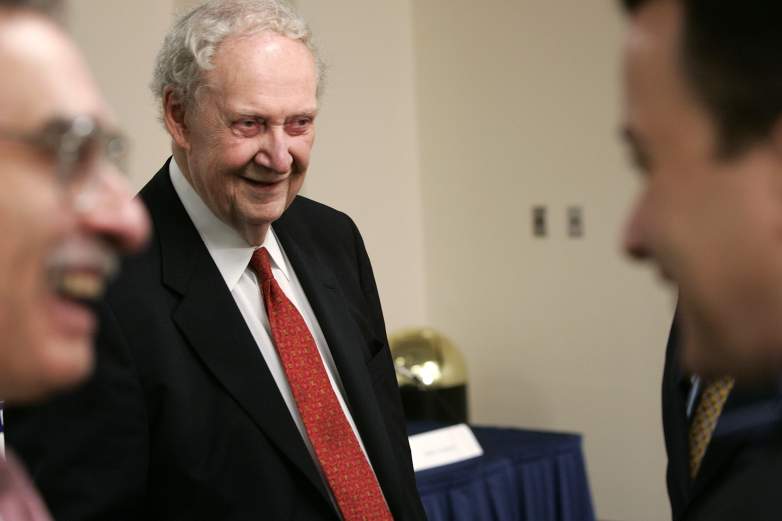
GettyFormer Supreme Court nominee Robert Bork smiles prior to a panel discussion about the U.S. Senate’s role on judicial nomination.
The Senate has rejected nominees at times in the past. In 1987 after Lewis Powell retired, former President Ronald Reagan nominated Robert Bork, who was a member of the Court of Appeals for the District of Columbia and supported constitutional originalism. His extremely conservative opinions and his role in the “Nixon Saturday Night Massacre” caused his nomination to be rejected by the Senate 42 to 58.
This was considered one of the most controversial votes in Supreme Court nominee history, the Constitutional Center reported. Led by then-Senator Joseph Biden, the Judiciary Committee sent Bork’s nomination to the floor with a recommendation that it be rejected. Bork had taught at Yale University, and his students included Bill and Hillary Clinton. He was Solicitor General of the Nixon administration and was later head of the Justice Department. In that position, he ordered the firing of special prosecutor Archibald Cox to avoid a constitutional crisis.
When Reagan nominated Bork, Ted Kennedy reacted with an inflammatory statement, talking about how Bork’s America included “back-alley abortions,” segregation, “rogue police” with midnight raids, censorship of artists, and more. Fifty-eight Senators in the Democrat-controlled Senate chose not to approve his nomination.
Douglas Ginsburg Withdrew His Nomination by Ronald Reagan Because He Had Smoked Marijuana
In one of the more shocking reasons for a withdrawal, Ronald Reagan’s second 1987 nomination of Douglas Ginsburg failed after it was revealed that he had smoked marijuana with his students while he was a Harvard Law professor, The Week reported. He also admitted smoking while a college student in the 1960s and 1970s.
An article written by The New York Times at that time said that Ginsburg withdrew his name after “enormous pressure from Administration officials and his own conservative supporters.” The New York Times said that his admission “embarrassed Mr. Reagan,” who had wanted the nomination to play a role in fighting crime.
One person said, “You just can’t have a law professor smoking marijuana who expects to be on the Supreme Court.”
Critics also voiced concern that he might have lied on a form he filled out for a previous nomination, and there were concerns about how he handled a cable TV case while he was invested in a cable company. Others thought he was too young and questioned a poor rating he had with the American Bar Association.
Ginsburg’s conservative beliefs were also questioned when it was revealed that he had dropped out of school once to help organize one of the first computerized dating services in the nation.
In a statement, Ginsburg said in part: “I was looking forward to sharing with the American people my views about justice and about the role of the courts in our society. Unfortunately, all of the attention has been focused on our personal lives, and much of that on events of many years ago… My views on the law and on what kind of Supreme Court Justice I would make have been drowned out in the clamor.”
After Ginsburg, Reagan nominated Anthony Kennedy, who was confirmed.
G. Harrold Carswell Was Rejected by the Senate Because of Inexperience
The Senate also rejected Carswell. In 1970, the Senate rejected Nixon’s nominations of G. Harrold Carswell because of inexperience, The Week reported. He had only been a judge for a short time, and Nixon nominated him for his “strict constructionist” leanings. But civil rights leaders also opposed him because he had a history of believing in white supremacy, NPR reported. In 1948, as a young Georgia legislature candidate, he had said: “I yield to no man as a fellow candidate or as a fellow citizen in the firm, vigorous belief in the principles of White Supremacy, and I shall always be so governed.” He also wanted to turn a public golf course into a private one and keep it segregated.
The Senate rejected his nomination 51-45.
Clement Haynsworth Was Rejected by the Senate in 1969
President Richard Nixon’s nomination of Clement Haynsworth was rejected 45-55 in 1969. They were concerned about ethical lapses and his civil rights record. He was accused of making court decisions in favor of segregation, of being anti-labor, and of ruling in cases where he had financial interests. Thirty-eight Democrats and 17 Republicans voted against him.
Herbert Hoover’s Nomination of John J. Parker Was Rejected 39-41
The American Labor Union opposed Parker because he favored yellow dog contracts. The NAACP opposed him because of his racial views.
Many other nominees were rejected or withdrawn in the 1800s. You can read about them here.

